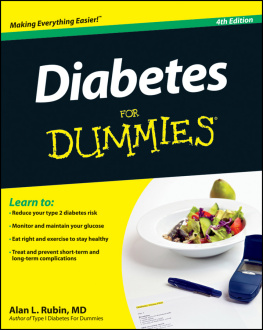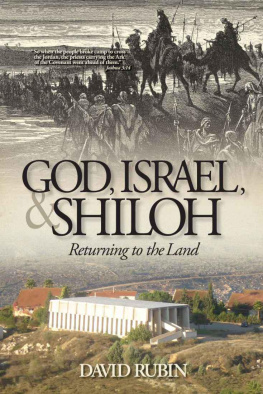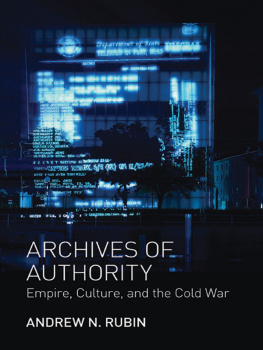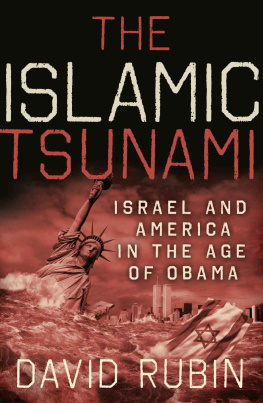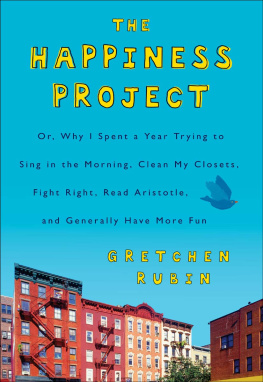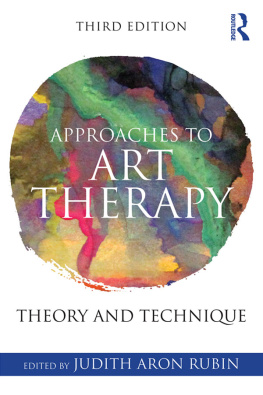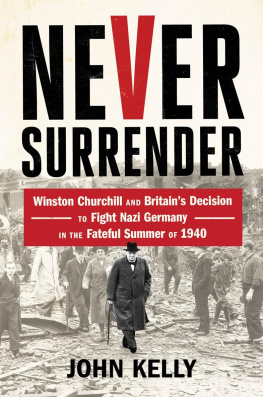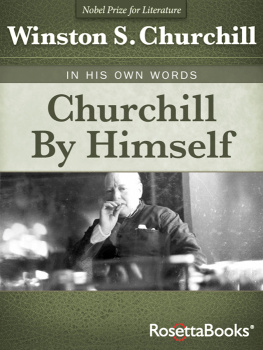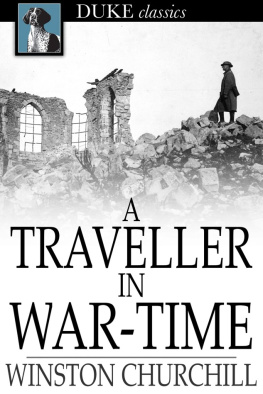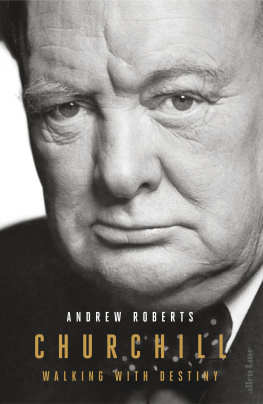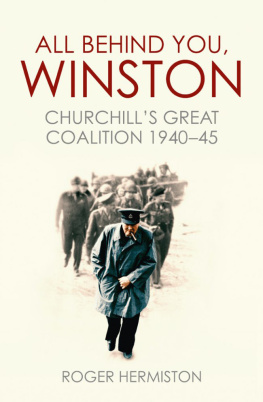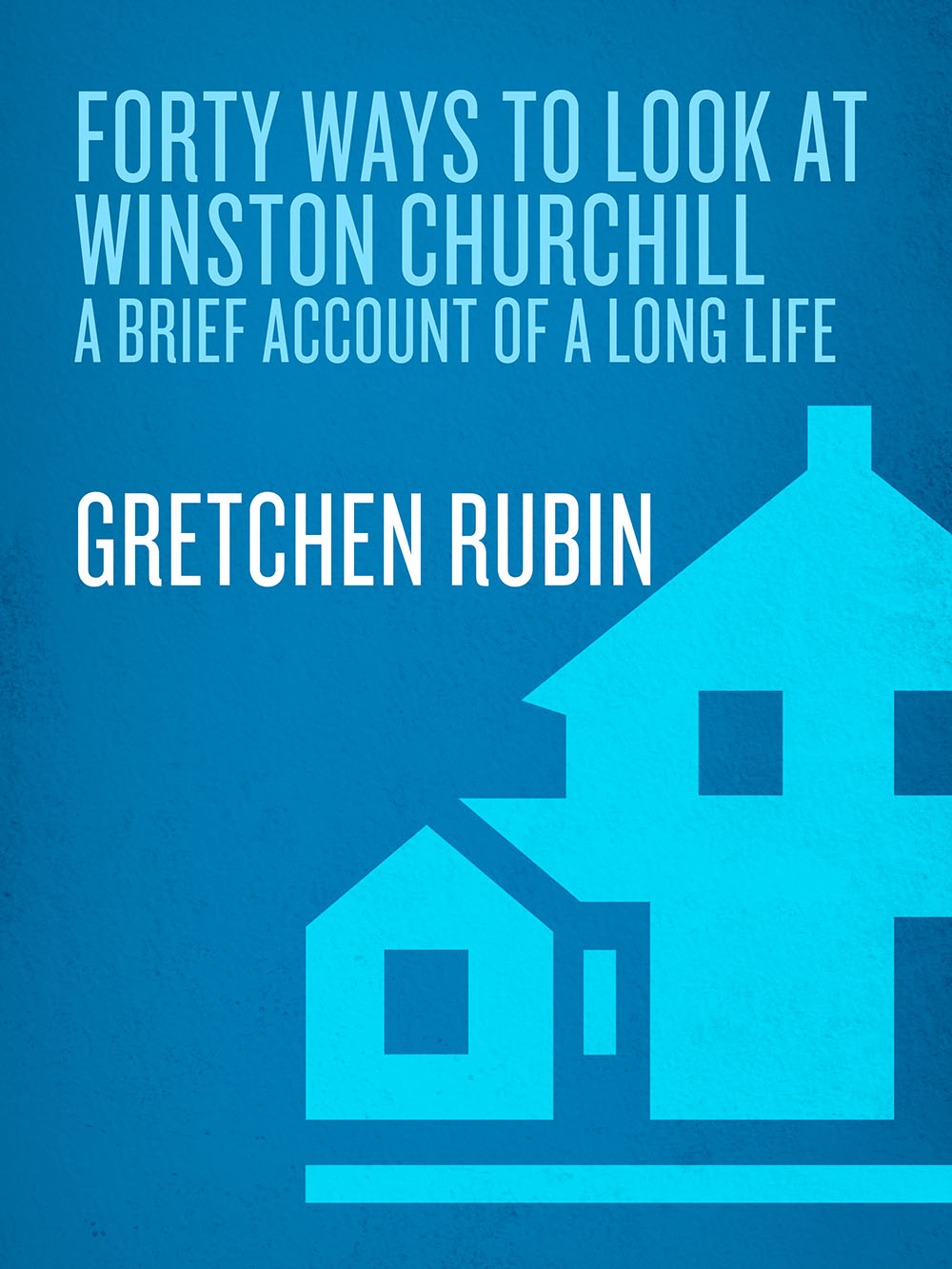
Forty Ways
to Look at
W INSTON
C HURCHILL
A Brief Account of a Long Life
Gretchen Rubin

RANDOM HOUSE TRADE PAPERBACKS
NEW YORK
2004 Random House Trade Paperback Edition
Copyright 2003 by Gretchen Craft Rubin
All rights reserved under International and Pan-American Copyright Conventions. Published in the United States by Random House Trade Paperbacks, an imprint of The Random House Publishing Group, a division of Random House, Inc., New York, and simultaneously in Canada by Random House of Canada Limited, Toronto.
Owing to limitations of space, permission acknowledgments can be found at the back, which constitute an extension of this copyright page.
Random House Trade Paperbacks and colophon are trademarks of Random House, Inc.
This work was originally published in hardcover by Ballantine Books, an imprint of The Random House Publishing Group, a division of Random House, Inc., New York, in 2003.
Library of Congress Cataloging-in-Publication Data
Rubin, Gretchen Craft.
Forty ways to look at Winston Churchill : a brief account of a long life / Gretchen Rubin.
p. cm.
Originally published: New York : Ballantine Books, 2003.
Includes bibliographical references and index.
1. Churchill, Winston, Sir, 18741965.
2. Prime ministersGreat BritainBiography.
3. Great BritainPolitics and government20th century.
I. Title: 40 ways to look at Winston Churchill. II. Title.
DA566.9.C5R79 2004
941.084'092dc22
www.atrandom.com
eISBN: 978-1-58836-384-8
v3.0_r1
Contents
We shall go on to the end. We shall fight in France, we shall fight on the seas and oceans, we shall fight with growing confidence and growing strength in the air, we shall defend our Island, whatever the cost may be. We shall fight on the beaches, we shall fight on the landing grounds, we shall fight in the fields and in the streets, we shall fight in the hills; we shall never surrender.
WINSTON CHURCHILL, ADDRESS TO THE HOUSE OF COMMONS JUNE 4, 1940
Many scenes have come & gone unwritten, since it is today the 4th Sept, a cold grey blowy day, made memorable by the sight of a kingfisher, & by my sense, waking early, of being again visited by the spirit of delight. Rarely rarely comest thou, spirit of delight. That was I singing this time last year; & sang so poignantly that I have never forgotten it, or my vision of a fin rising on a wide blank sea. No biographer could possibly guess this important fact about my life in the late summer of 1926: yet biographers pretend they know people.
VIRGINIA WOOLF, Diaries
SEPTEMBER 4, 1927
Forty Ways to Look at
WINSTON CHURCHILL
I ntroduction
I know exactly when my obsession with Winston Churchill began: on a plane from New York City to Anchorage, while I was reading a World War II history that described a scene at Churchills country house. Prime Minister Churchill, we learn, had standing orders that he was to be awakened before 8:00 A.M. only if Britain itself was invaded. Sometime after 8:00 one morning in 1941, Foreign Secretary Anthony Eden answered a knock by Churchills valet, who presented him with a cigar on a silver tray. The Prime Ministers compliments, and the German armies have invaded Russia. Churchillwhat a character! Not to be disturbed in sleep even for such extraordinarily good news for Britain. And then to celebrate by sending around a cigar, with that wonderful message, The Prime Ministers compliments, and the German armies have invaded Russia.
I wanted to read more. Like many people born after Churchills death in 1965, I knew little about him. Hed been a great Prime Minister during that war, and hed given a famous speech about this was their finest hour, and after Lady Astor snapped, Winston, if I were your wife, Id put poison in your coffee, hed retorted, Nancy, if I were your husband, Id drink it. That was about the extent of my knowledge. I dog-eared the page to remind myself to track down a Churchill biography.
But later at the library, the huge and often multivolume biographies daunted me, and when I turned instead to read Churchill himself, I faced his five-volume history of World War I, his six-volume history of World War II, and his four-volume history of the English-speaking peoples. I didnt know where to start. I wanted to know something about Churchill but not everything about him.
But I was lucky. I made just the right choiceChurchills partial memoir, My Early Life. The man was a James Bond whod actually lived, the hero of a novel that really happened. I was enthralled by Churchills fantastic successes and failures, by his outsize character, and by his historic vision. And his writing was so masterfulI found myself rereading passages to savor his words. The senior officers consulted together. As so often happens when things go wrong formalities were discarded, and I found myself taking part in the discussion. Of his obnoxious ambition as a young soldier, Churchill wrote:
The expressions Medal-hunter and Self-advertiser were used from time to time... in a manner which would, I am sure, surprise and pain the readers of these notes. It is melancholy to be forced to record these less amiable aspects of human nature, which by a most curious and indeed unaccountable coincidence have always seemed to present themselves in the wake of my innocent footsteps.
The books closing paragraph was unforgettable: Events were soon to arise in the fiscal sphere which were to plunge me into new struggles and absorb my thoughts and energies at least until September 1908, when I married and lived happily ever afterwards. He published this memoir in 1930.
After that first book, I read one volume after another about Churchill and by Churchill. The scope of his life and experience overwhelmed me: just consider that Churchill was born in 1874 (the American Civil War ended in 1865) and lived to age ninety, entered Parliament first in 1900 at age twenty-five, held seven Cabinet positions between 1908 and 1940, was Prime Minister twice, and finally retired in 1964, at age eighty-nine. He lived in a time of tremendous change: he fought in a British cavalry charge using lances as weapons; already a Cabinet member in 1910, Churchill urged that Britain contact the Wright brothershed heard about the invention of the airplane; he died the year Malcolm X was shot.
As I plunged into his life, a truth (often noted, often overlooked) confronted me: Churchills portrait could be drawn in innumerable ways, all true. I was struck to see his biographers reach different conclusions from the same facts. Was Churchill a military genius or a meddling amateur? Was he a great defender of liberty or a reactionary imperialist? Was he a success or a failure? Once I had command of the material, I amused myself by tracing how each account exaggerated certain details, and slid over others, to support its conclusions.
Some issues are complex, so its unsurprising that biographers weigh the evidence differently or reach contradictory conclusions. But often even a seemingly straightforward fact takes on a different character when related by different biographers. For example, in his fascinating account The Duel: Hitler vs. Churchill, John Lukacs observes, Churchill, unlike Hitler, was a man of unrepressed feelings. Tears, on some occasions, would come into his eyes. This is quite an understatement. Churchill in fact cried often and abundantlyhe could have filled buckets according to one colleague. Perhaps Lukacs didnt feel comfortable with the notion of a weepy Churchill.
Next page

